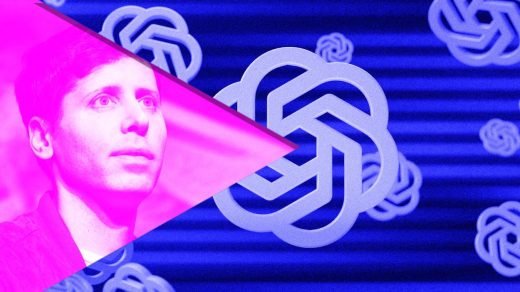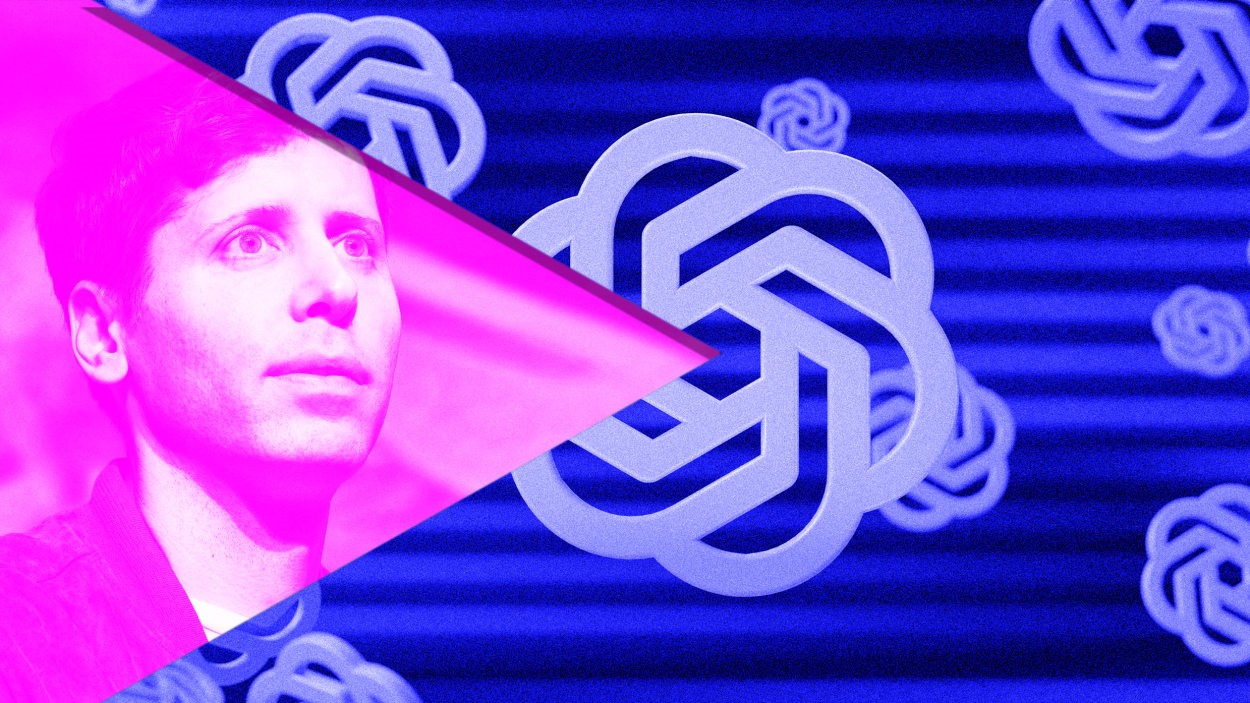OpenAI’s meltdown won’t be the last corporate drama spurred by AI
Thanks for spending time with Plugged In, Fast Company’s weekly tech newsletter. If a friend or colleague forwarded this edition to you—or you’re reading it on FastCompany.com—you can check out previous issues and sign up to get it yourself every Wednesday morning. If you have any feedback or ideas for future newsletters, drop me a line at hmccracken@fastcompany.com.
First, a disclaimer: Writing a newsletter about what’s happening at OpenAI is a fraught endeavor. So much has happened so quickly that between the moment I press the “Publish” button and the time you read this, further shockers could have obliterated any attempt at timely analysis.
Still, there are some things about the episode that even further bizarre turns of events can’t undo. One of them is its fundamental bizarreness. Even the few prior moments in business history that people have been bringing up as precedents—such as Steve Jobs’ removal from Apple in 1985—are nothing like this. Or at least I don’t remember almost every Apple employee signing a letter threatening to quit unless Jobs was reinstated.
To recap some of the major elements of the current drama so far:
As extraordinary as all this is, I can’t help but believe it’s a harbinger of things to come in the AI era. After all, if OpenAI had been started to make (let’s say) file-compression software, its founders wouldn’t have made it a nonprofit and given it a board whose mandate was to develop its products responsibly rather than maximize their economic potential. If it were that same file-compression startup, internal disagreements over its future wouldn’t be regarded by anyone as involving the fate of humanity. Neither would Microsoft have invested $13 billion in such a company or seen its breakthroughs as critical to the future of everything from Windows to Azure, turning OpenAI’s crisis into a Microsoft crisis. And a file-compression company’s 700 staffers wouldn’t be courted by tech giants en masse, giving them the freedom to sign a threatening letter to their current employer’s board, repercussions be damned.
At every twist and turn of this saga, the fact that the technology in question was AI prompted the people involved to behave as they did. And however things settle down for OpenAI, the fundamental dynamics won’t change. Many smart people will remain apprehensive about AI’s potential impact on the world. Many others will see it as the most profound business opportunity since the Industrial Revolution. The fact that some people will fall into both camps only complicates matters further.
Will the AI industry learn anything from what OpenAI has been going through? Maybe, though its takeaway won’t necessarily be particularly healthy. If Microsoft and other investors’ profit motive ends up trumping OpenAI’s founding desire to err on the side of keeping its AI safe, it could open the floodgates for other companies whose commitment to responsible AI is less serious than those of both OpenAi and Microsoft. (Tidbit from my recent Fast Company cover story on Nadella’s AI initiative: At the time I reported the story, Microsoft had 129 employees dedicated to AI safety, and a total of 350 whose work involved it at least in some respects.)
Even if you see the board members who voted to oust Altman as clowns who couldn’t even play one-dimensional chess, they may have done us a favor by revealing how fragile OpenAI really was. There must be better ways to manage the technology thoughtfully—and there may not be that many that would be worse.
Oh, and one other thing: If there’s one overarching lesson here, it’s that human beings are weird, unpredictable, and prone to making decisions without considering their implications. I’m all for protecting humanity from erratic AI—but let’s not forget to protect AI from erratic humans along the way.
(40)



